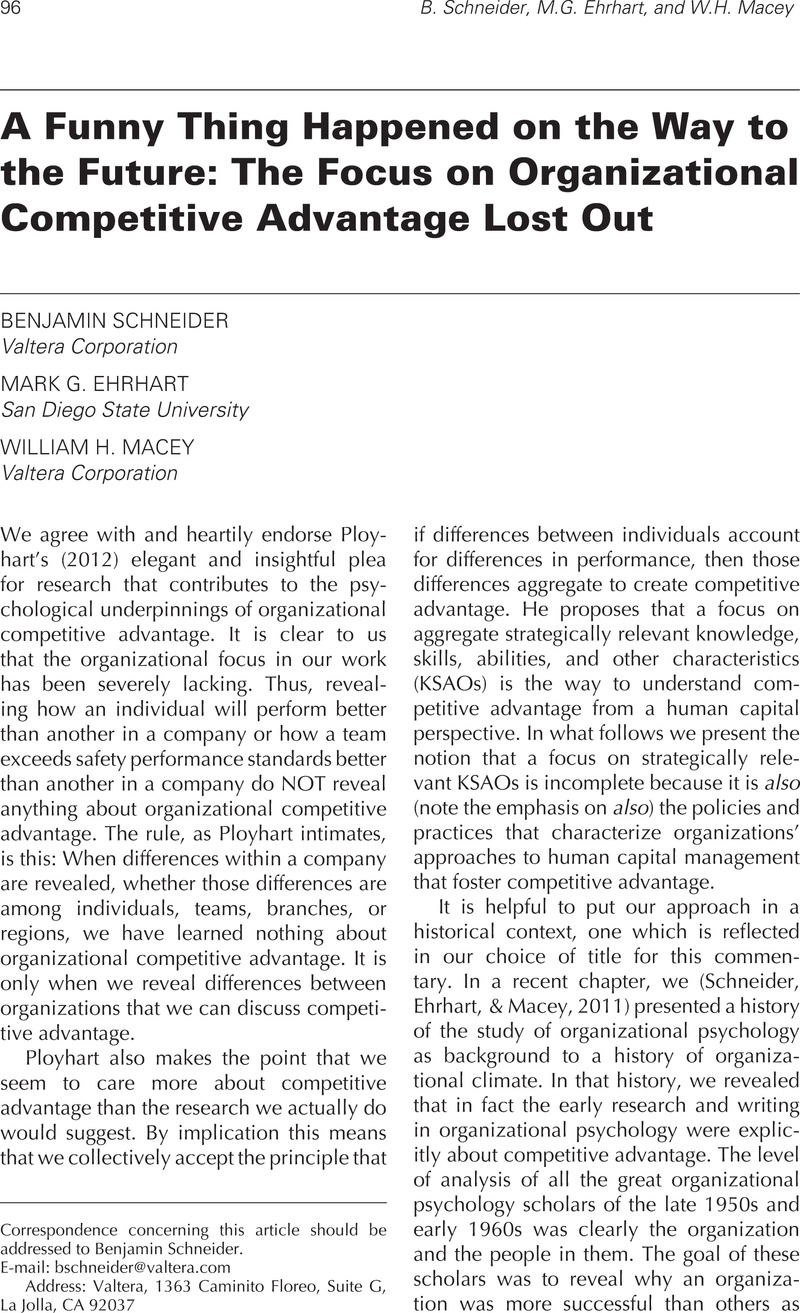Crossref Citations
This article has been cited by the following publications. This list is generated based on data provided by Crossref.
Ployhart, Robert E.
2012.
From Possible to Probable: The Psychology of Competitive Advantage.
Industrial and Organizational Psychology,
Vol. 5,
Issue. 1,
p.
120.
Alcaraz, Jose M.
Kausel, Edgar E.
Colón, Carlos
Escotto, Marco Iván
Gutiérrez-Martínez, Isis
Morales, Daniel
Prado, Andrea
Suárez-Ruz, Esperanza
Susaeta, Lourdes
and
Vicencio, Fabián E.
2012.
Putting Organizational Culture at the Heart of Industrial–Organizational Psychology's Research Agenda on Sustainability: Insights From Iberoamerica.
Industrial and Organizational Psychology,
Vol. 5,
Issue. 4,
p.
494.
Ployhart, Robert E.
and
Hale, Donald
2014.
The Fascinating Psychological Microfoundations of Strategy and Competitive Advantage.
Annual Review of Organizational Psychology and Organizational Behavior,
Vol. 1,
Issue. 1,
p.
145.
Ployhart, Robert E.
2015.
Strategic Organizational Behavior (STROBE): The Missing Voice in the Strategic Human Capital Conversation.
Academy of Management Perspectives,
Vol. 29,
Issue. 3,
p.
342.
Felin, Teppo
Foss, Nicolai J.
and
Ployhart, Robert E.
2015.
The Microfoundations Movement in Strategy and Organization Theory.
Academy of Management Annals,
Vol. 9,
Issue. 1,
p.
575.
Felin, Teppo
Foss, Nicolai J.
and
Ployhart, Robert E.
2015.
The Microfoundations Movement in Strategy and Organization Theory.
Academy of Management Annals,
Vol. 9,
Issue. 1,
p.
575.
Gagné, Marylène
2018.
From Strategy to Action: Transforming Organizational Goals into Organizational Behavior.
International Journal of Management Reviews,
Vol. 20,
Issue. S1,
Lievens, Filip
Sackett, Paul R.
and
Zhang, Charlene
2021.
Personnel selection: a longstanding story of impact at the individual, firm, and societal level.
European Journal of Work and Organizational Psychology,
Vol. 30,
Issue. 3,
p.
444.





